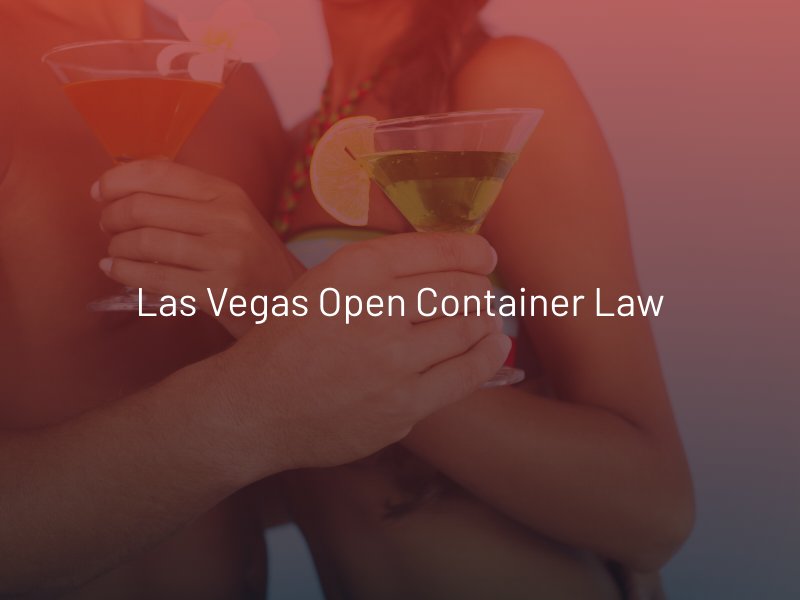Las Vegas Open Container Law
When it comes to alcohol, there are no laws against public consumption in Las Vegas and the Las Vegas Strip, as long as the alcohol is not in a glass container.

Overview of Las Vegas Open Container Law
Under Nevada law, you can drink alcohol on the street in Las Vegas, but some restrictions apply to the type of containers allowed and the proximity to certain buildings. The intentions of the limitation on an alcohol container being glass are to prevent broken glass from littering the streets and walkways and limit violence committed with broken bottles.
Alcoholic beverages purchased in a closed container cannot be opened within 1,000 feet from the store it was purchased. If the drink is an open container (e.g., plastic cup), then there are no restrictions. Alcohol is also prohibited from being consumed within 1,000 feet of all schools, places of worship, hospitals, homeless shelters, and substance management facilities.
Visitors must keep in mind that they are responsible for following drinking restrictions as well as their own proper and legal conduct at all times. Although it is legal to have an open container on the strip, Las Vegas police can still make an arrest for disorderly conduct or a similar offense.
Open Containers in Vehicles
Drivers and passengers cannot have open containers of alcoholic beverages in their vehicles unless they are in a limousine or a vehicle used primarily for the transportation of people (e.g., taxi, shuttle, tour bus, etc.). However, the vehicle must have a special permit that allows passengers to drink, and some companies forbid consumers from consuming alcohol in a vehicle. Since drivers for rideshare companies use their personal vehicles, you cannot drink in an Uber, Lyft, etc.
Increased Risk of Accidents
Due to the relaxed drinking rules in Las Vegas, there is an increased chance of an accident and injury occurring—for example:
- Car accidents
- Pedestrian accidents
- Slip and falls due to spills
- Criminal attacks, assaults and robberies
People on the strip can easily let things get out of hand, and drinking activities may go beyond what the law allows. Being drunk in public is not illegal, but an individual can be legally responsible if their negligent actions cause injury to another. As a result, victims may be entitled to compensation by filing a claim with a Las Vegas personal injury lawyer directly against the at-fault person.
Many states also allow injury victims to hold an establishment or business liable for providing the alcohol or over-serving the at-fault party (i.e., dram shop claims). However, in Nevada, businesses and individuals licensed to sell, serve, or provide alcohol have immunity. They cannot be held responsible for the actions of intoxicated patrons.
Nevada’s dram shop statute does not protect social hosts or anyone who does not have a license to provide alcohol in cases where a minor was served. For example, say a bartender knowingly serves alcohol to a minor, and the intoxicated minor causes another patron to fall off their chair and hit their head. A personal injury claim cannot be brought against the owner of the bar, but the intoxicated minor, as well as the bartender, can be held responsible.